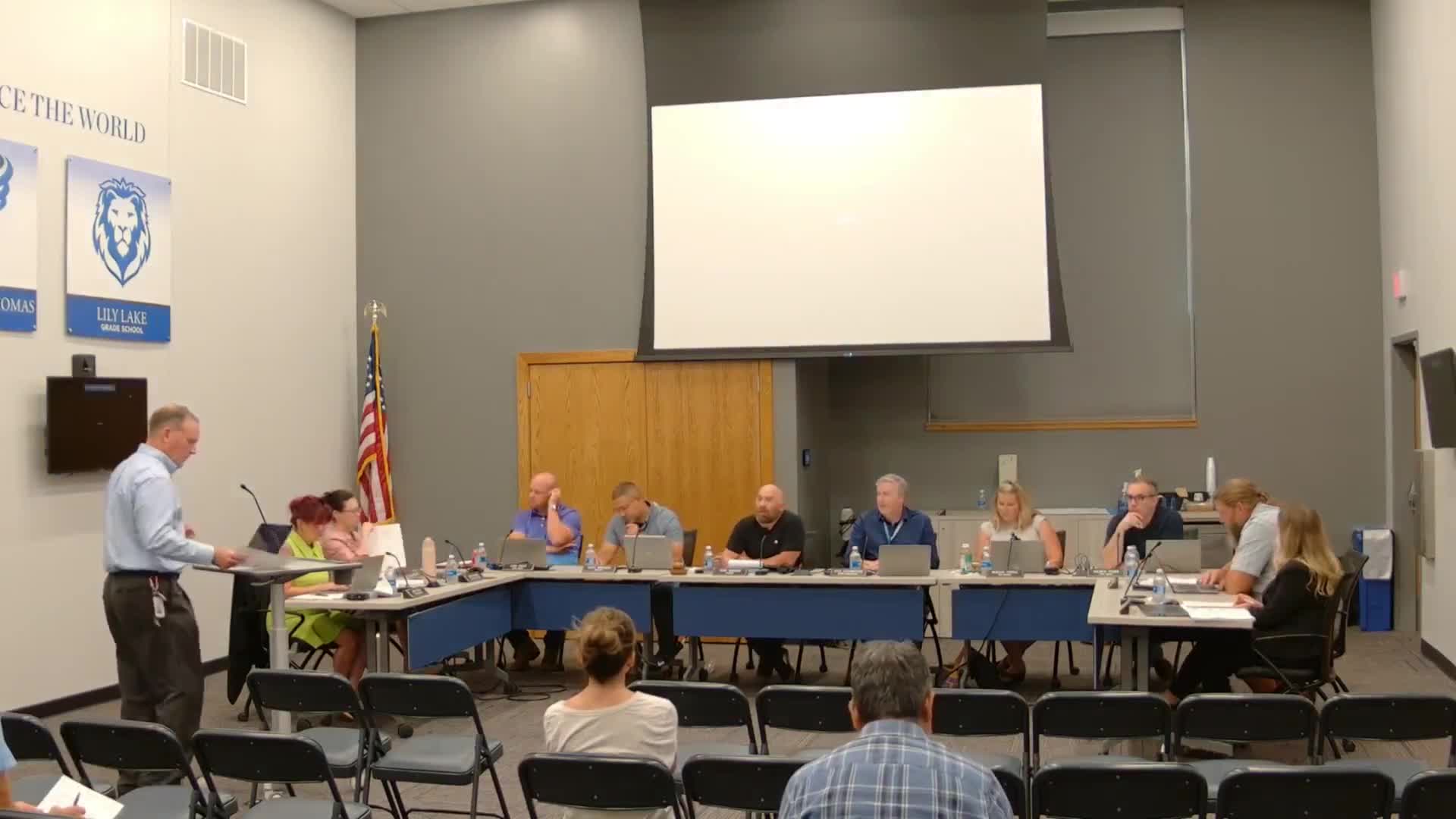Northern Kane CTE director reports growth in internships, dual credit and state grant funding
Get AI-powered insights, summaries, and transcripts
Subscribe
Summary
Terry Strowell, director of the Northern Kane County Regional Vocational System, told the Central CUSD 301 board that federal and state grant funding and work-based learning opportunities have grown substantially, including a jump in paid internships and dual‑credit attainment for regional students.
Terry Strowell, director of the Northern Kane County Regional Vocational System, told the Central CUSD 301 Board of Education onstage that federal and state grant dollars and work-based learning opportunities for students have increased markedly in recent years.
Strowell said the regional system, which serves the districts that feed Elgin Community College, manages Perkins federal funding and state grants that support career and technical education (CTE). “Federal Perkins dollars, we get approximately $600,000 every year,” Strowell said, and “over the course of the last 5 years, we've grown from just over a million to now just over $2,000,000 in grant dollars” from the state of Illinois.
The numbers, Strowell said, have translated into more student access to internships, dual credit and industry partnerships. He reported that this is the fourth summer of a regional paid internship program, growing from 52 students in year one to about 240 students this year across nine career areas. Strowell said more than 1,000 students applied this summer for internships.
Strowell also described large increases in dual‑credit attainment and work‑based learning: program data he presented show post‑secondary credit participation rising from under 2 percent to nearly 55 percent, and work‑based learning participation growing from about 5.4 percent to nearly 10 percent over recent years. He said CTE concentrators — students who take two or more classes in the same CTE strand — have higher graduation and proficiency rates than their peers, and cited improvements for Black and Hispanic students' graduation rates when they participate in CTE concentrator programs.
Strowell reviewed specific regional programs and industry partnerships: Hampshire High School’s American Welding Society–accredited welding lab, Dundee‑Crown’s electrical lab, a veterinary science lab hosted by District 301, WT Group and Bucha Hydraulics internship placements, and first‑responder internships with Bartlett and Hanover Park agencies. He said one employer, the Lucrecio Auto Group, hired all four interns it hosted last year.
Board members asked about the gap between internship applicants and available placements; Strowell said the limiting factors are the number of slots companies can host and clinical window constraints at hospitals. He invited board members to visit regional CTE sites and internships.
Why it matters: Strowell framed CTE expansion as both an academic and economic strategy — higher graduation rates and earnings for participants, reduced lifetime public costs tied to dropout, and local workforce development. He said the region now brings roughly $2.5 million a year back to the community in wages and reduced social‑service needs attributable to higher graduation and placement rates.
Strowell closed by noting the region’s role as fiscal agent for Perkins grants and the Alignment Collaborative partnership used to scale resume workshops and job fairs for students.
